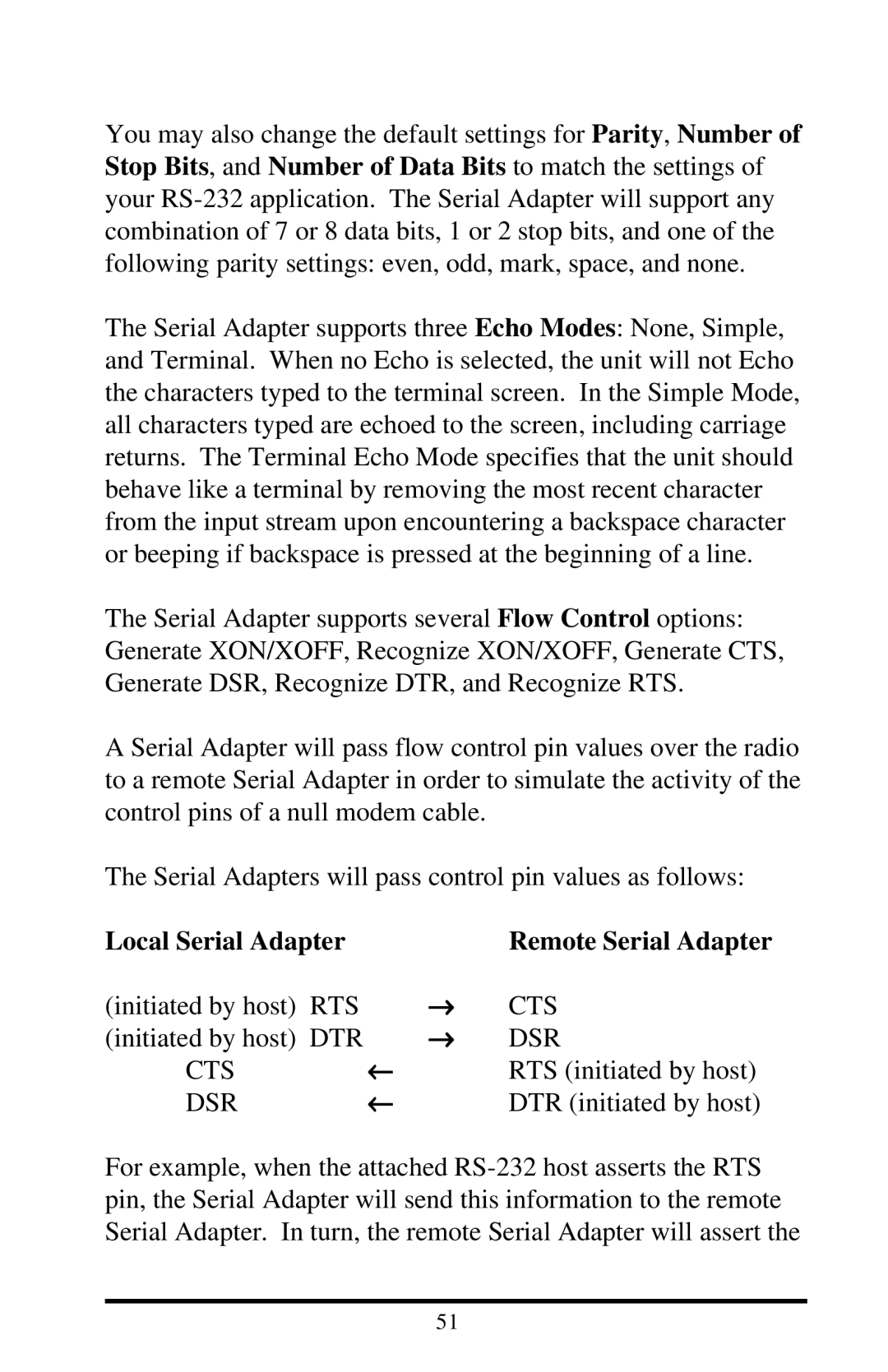You may also change the default settings for Parity, Number of Stop Bits, and Number of Data Bits to match the settings of your
The Serial Adapter supports three Echo Modes: None, Simple, and Terminal. When no Echo is selected, the unit will not Echo the characters typed to the terminal screen. In the Simple Mode, all characters typed are echoed to the screen, including carriage returns. The Terminal Echo Mode specifies that the unit should behave like a terminal by removing the most recent character from the input stream upon encountering a backspace character or beeping if backspace is pressed at the beginning of a line.
The Serial Adapter supports several Flow Control options: Generate XON/XOFF, Recognize XON/XOFF, Generate CTS, Generate DSR, Recognize DTR, and Recognize RTS.
A Serial Adapter will pass flow control pin values over the radio to a remote Serial Adapter in order to simulate the activity of the control pins of a null modem cable.
The Serial Adapters will pass control pin values as follows:
Local Serial Adapter |
| Remote Serial Adapter |
(initiated by host) RTS | → | CTS |
(initiated by host) DTR | → | DSR |
CTS | ← | RTS (initiated by host) |
DSR | ← | DTR (initiated by host) |
For example, when the attached
51
